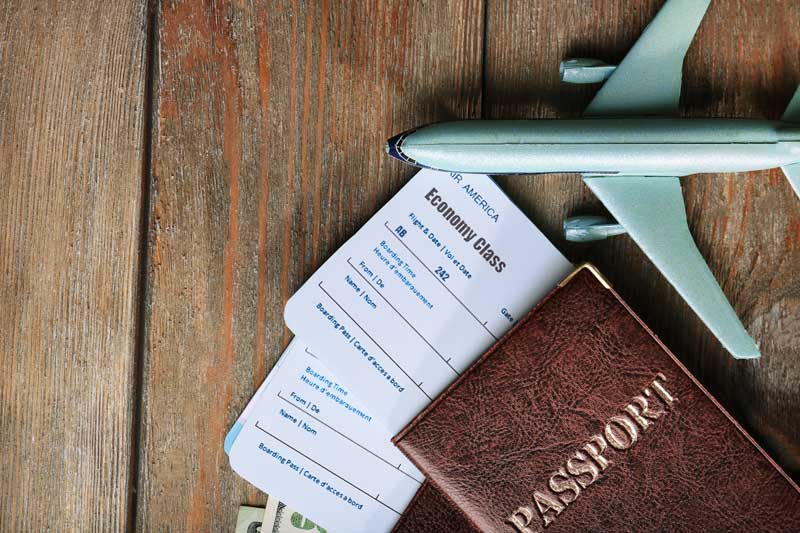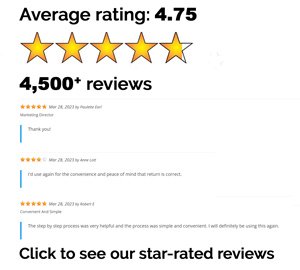After being stuck at home the last couple summers due to the pandemic, many people are excited to finally start traveling again. If you’re planning a trip in the coming months, you probably know to budget for hotel, airfare, activities, and food; but there are some other expenses that can catch you by surprise. Here are some hidden travel fees that can trip you up.
Checked baggage fees
The only domestic airline that offers free checked bags for all passengers is Southwest. Everyone else charges a checked bag fee and in some cases, you may have to pay for a carry-on. American Airlines and Delta both charge $30 for your first checked bag. JetBlue’s checked bag fee is slightly higher. They charge $35 for your first checked bag. The fee applies to each leg of your trip and can quickly add up when traveling as a group. For instance, a family of 4 each carrying their own suitcase on Delta would have to pay $240 in checked bag fees round-trip.
Overweight baggage fees
Most people tend to overpack for trips and airlines capitalize on it. If your luggage weighs more than 50 pounds, airlines will charge you an overweight baggage fee. Here’s how much you can expect to pay with some of the popular airlines.
- American Airlines – $100 for bags weighing 51-70 lbs., $200 for bags weighing 71-100 lbs.
- Delta – $100 for bags weighing 51-70 lbs., $200 for bags weighing 71-100 lbs.
- JetBlue – $150 for bags weighing 51-99 lbs.
- Spirit – $50 for bags weighing 41-50 lbs., $75 for bags weighing 51-100 lbs.
- Southwest – $75 for bags weighing more than 50 lbs.
Before heading to the airport, weigh your suitcase on a bathroom scale. If it’s overweight, remove some things you don’t need. Avoid overpacking by using a small suitcase, planning your outfits in advance, carrying multipurpose shoes, and packing travel-size toiletries.
Seat selection fees
The drawback of booking ultra-low airfare is that you’re randomly assigned a seat at check-in. Odds are you’ll either be stuck in a middle seat which no one wants or separated from your travel buddies. If you want to pick specific seats, you’ll need to pay extra for seat selection. JetBlue customers who booked Blue Basic fares must pay between $5-$40 each way to select their seats more than 24 hours before departure. Requesting a regular seat on a Spirit flight can cost you between $1-$50 per seat. Those who prefer Big Front Seats will need to pay $12-$250 per seat.
Boarding pass printing
Believe it or not, some airlines actually charge a fee for printing your boarding pass. Allegiant Air charges $5 for each boarding pass printed by an airport agent. Meanwhile, Spirit charges $2 per boarding pass printed at the airport kiosk and $10 per ticket printed by an airport agent. There are two ways to avoid the fee, you can check-in online and print your boarding pass at home or you can download a mobile boarding pass using the airline’s app.
Passport fees
If you plan to travel abroad, you’re going to need a passport and it’s not free. Adults (16 or older) who are first time applicants must pay two fees – an application fee and an acceptance fee. For a passport book, the application fee is $130, and the acceptance fee is $35. If you’re looking to renew your passport book, it’s $130. Parents applying for their child’s passport must pay a $100 application fee plus a $35 acceptance fee. Keep in mind, child applicants must apply in person. It usually takes 8-11 weeks for your passport to be processed. For an additional $60, you can get your passport expedited which will cut the waiting time down to 5-7 weeks.
Travel insurance
No matter how much planning you do, there’s always a possibility that unforeseeable events will ruin your travel plans. That’s when having travel insurance comes in handy. It will protect you from losing your money if you need to cancel your trip at the last minute. It can also help you if your flight gets cancelled, you get injured while you’re away or the airline loses your luggage. Travel insurance generally costs 4-10% of your total trip.
Transportation to and from your hotel
Once you arrive at your destination, you’re going to need a way to get to get around. Some cities have reliable public transportation, while others do not. So plan accordingly. Taking the bus or subway is an affordable option, but strongly consider whether you actually want to lug a heavy suitcase around. Saving a few bucks may not be worth the hassle. Catching a taxi costs more, but it’s also more convenient. If you plan to rent a car during your trip, do your homework because some hotels charge a nightly parking fee.




